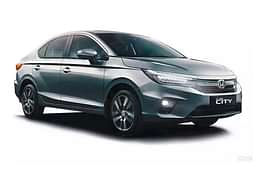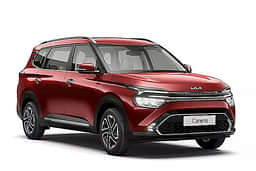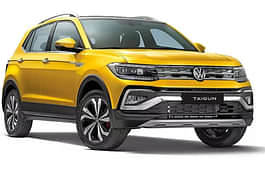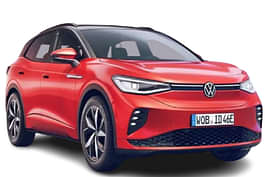
There has always been a long-standing debate regarding sedans Vs SUVs for ages. These cars belong to two different categories with their own set of boons and banes. The Volkswagen Group was working on Project India 2.0 for a long time and has come up with two fabulous products namely the VW Virtus sedan replacing the Vento and a new SUV offering, the VW Taigun. These cars fall in a similar price bracket and are one of the biggest points of confusion when you land into the market to get your hands on a Volkswagen. So, here we are with a detailed comparison of the VW Virtus Vs VW Taigun along with all the differences and similarities.
Utility:
Sports Utility Vehicles, popularly abbreviated as SUVs are popular for their high ground clearance and rugged feel. Sedans are mostly low slung and give more of an executive feel. If you live in a region with a rough terrain, the Virtus can be a pain to drive! The Virtus sits 179 mm high from the group, while the Taigun is 188 mm high. So, the Taigun has an upper edge in terms of utility. Alongside, if you have elderly people in your family, the ingress and egress in the Taigun will be much easier due to the high seat height.

Driveability:
Volkswagens are well known for their on point driving dynamics but here's the catch! There is always a difference between the driveability of an SUV Vs a Sedan! As a sedan is low slung, it has a lower centre of gravity and you would surely enjoy pushing it through the corners. Moreover, sedans seem to be more composed in terms of highway manners as well due to better aerodynamics and a better power to weight ratio. This doesn't make the Volkswagen Taigun a deal breaker as it has its own set of perks! The Taigun does provide an upright seating posture with the driver seat high and commanding enough on the road. The driving dynamics are good enough in terms of being an SUV and the body roll is in control even while cornering.

Also Read: Volkswagen Virtus 1.5 TSI GT Petrol Automatic Test Drive Review
Design Language:
To some extent, the design language is termed to be a personal opinion of the pool. However, the Virtus has already taken over the likes of the enthusiasts with its on spot looks and timeless design. Both these vehicles are based on the same MQB - A0 - IN platform which is a part of the Project India 2.0 and has been exclusively tweaked for the Indian conditions. The recent craze would surely take over your mind if you want an uplifted drive!

Powertrain:
Both these cars feature identical powertrain systems. The famous 1.0 Litre TSi motor is a popular choice among many enthusiasts as it has seen many vehicles from the PQ25 platform in the past as well. This motor puts out 114 bhp of peak power with a peak torque of 178 Nm. This engine option is available with a six speed manual transmission or a six speed automatic (torque convertor) in both the Virtus and the Taigun.
The main highlight of the Volkswagen group is the introduction of the 1.5 Litre TSi motor which is much more potent when compared to the 1.0 Litre motor. This 1.5 Litre motor produces a massive power of 148 bhp and 250 Nm of torque. Here comes a point of difference between them both. This engine is mated with a 6 speed manual or is also available with a DQ200 DSG in the Taigun, but the Virtus misses out on a manual!
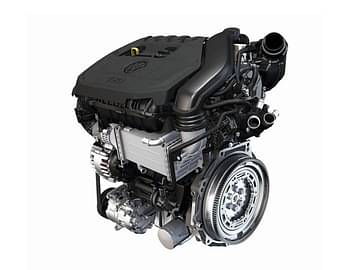
Space:
Being based on exactly the same platform, these vehicles feature the same wheelbase length, but the Virtus would me much longer own length as it is a sedan. Both these vehicles don't miss out on enough interior space. The Taigun would feel more spacious and comfortable for tall and elderly people. As per the loading capacity, sedans always have an upper edge in terms of boot space. The Virtus has a massive boot capacity of 520 litres while the Taigun has just 385 litres.
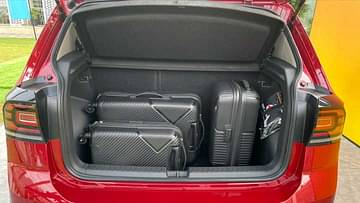
Feature list and Safety Equipment:
As suspected, the Virtus Vs Taigun lock horns with their feature list and safety equipment. Both these cars feature a massive 10.1 inch infotainment system with advanced Smartphone connectivity features like wireless Apple CarPlay and Android Auto, wireless charger, touch sensitive air conditioning controls, fully digital instrument cluster, all LED headlamps with DRLs, ventilated seats and much more!
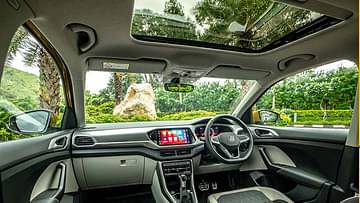
On the safety front, both the Volkswagens are equipped with Reverse Parking Sensors with a Reverse Parking Camera display, an Anti-Lock Braking System (ABS) with Electronic Brake Distribution (EBD) as standard, Traction Control System (TCS), multiple airbags, Hill Hold Control with Hill Start Assist, Anti Slip Regulation, Tyre Pressure Monitoring System (TPMS), Multi Collision Braking Control, Brake Disk Wiping, ISOFIX anchorage points for a child seat and much more!
Also Read: VW Taigun Gets TPMS and Engine Idle Start/Stop As Standard; Prices Increased By Four Percent
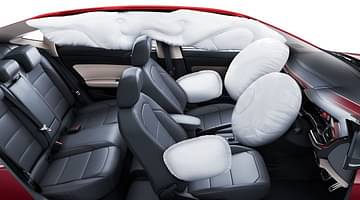
Price:
The Volkswagen Taigun ranges between Rs. 10.99 Lakhs to Rs. 17.99 Lakh ex showroom price Delhi, where 1.0 Litre TSI Comfortline is the most affordable variant and the 1.5 TSI GT with a DSG costs 17.99 Lakhs. The Volkswagen Virtus has officially been released but will go on sale on 9 June 2022. It is expected to be priced in a similar bracket of 12 Lakh to 19 Lakh but would surely have a price difference to differentiate the products.
Also Read: Volkswagen Virtus Launch On 9 June - All Things To Checkout!
On the whole, the two German cars, Virtus Vs Taigun, have especially been designed and tweaked for the Indian markets and are decently priced as per the competition. An SUV Vs Sedan turns out to be a personal choice as per multiple factors and surely are unique in their own ways.




